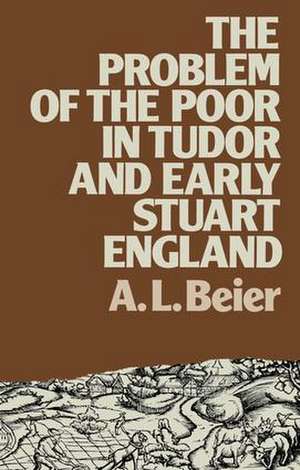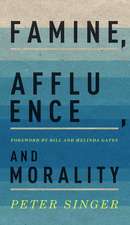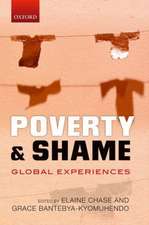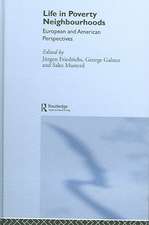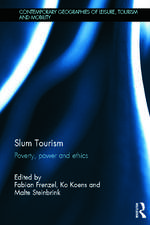The Problem of the Poor in Tudor and Early Stuart England: Lancaster Pamphlets
Autor A. L. Beieren Limba Engleză Hardback – 14 dec 2016
| Toate formatele și edițiile | Preț | Express |
|---|---|---|
| Paperback (1) | 341.05 lei 6-8 săpt. | |
| Taylor & Francis – 17 mar 1983 | 341.05 lei 6-8 săpt. | |
| Hardback (1) | 1000.27 lei 6-8 săpt. | |
| Taylor & Francis – 14 dec 2016 | 1000.27 lei 6-8 săpt. |
Din seria Lancaster Pamphlets
-
 Preț: 293.10 lei
Preț: 293.10 lei -
 Preț: 285.22 lei
Preț: 285.22 lei -
 Preț: 320.66 lei
Preț: 320.66 lei -
 Preț: 293.29 lei
Preț: 293.29 lei -
 Preț: 320.13 lei
Preț: 320.13 lei - 39%
 Preț: 759.31 lei
Preț: 759.31 lei -
 Preț: 349.53 lei
Preț: 349.53 lei - 18%
 Preț: 1000.27 lei
Preț: 1000.27 lei - 18%
 Preț: 1000.27 lei
Preț: 1000.27 lei -
 Preț: 343.17 lei
Preț: 343.17 lei -
 Preț: 205.26 lei
Preț: 205.26 lei - 18%
 Preț: 1000.27 lei
Preț: 1000.27 lei -
 Preț: 342.74 lei
Preț: 342.74 lei - 18%
 Preț: 234.80 lei
Preț: 234.80 lei - 18%
 Preț: 1000.27 lei
Preț: 1000.27 lei - 18%
 Preț: 1000.27 lei
Preț: 1000.27 lei - 28%
 Preț: 242.47 lei
Preț: 242.47 lei - 18%
 Preț: 1000.27 lei
Preț: 1000.27 lei - 18%
 Preț: 1000.27 lei
Preț: 1000.27 lei - 18%
 Preț: 1000.27 lei
Preț: 1000.27 lei - 18%
 Preț: 1000.27 lei
Preț: 1000.27 lei - 18%
 Preț: 1000.27 lei
Preț: 1000.27 lei -
 Preț: 339.50 lei
Preț: 339.50 lei - 39%
 Preț: 758.03 lei
Preț: 758.03 lei -
 Preț: 293.01 lei
Preț: 293.01 lei -
 Preț: 334.46 lei
Preț: 334.46 lei - 18%
 Preț: 1000.27 lei
Preț: 1000.27 lei - 27%
 Preț: 228.47 lei
Preț: 228.47 lei -
 Preț: 346.14 lei
Preț: 346.14 lei -
 Preț: 342.03 lei
Preț: 342.03 lei - 18%
 Preț: 992.38 lei
Preț: 992.38 lei - 18%
 Preț: 1000.27 lei
Preț: 1000.27 lei -
 Preț: 340.87 lei
Preț: 340.87 lei - 18%
 Preț: 1000.27 lei
Preț: 1000.27 lei - 18%
 Preț: 1000.27 lei
Preț: 1000.27 lei - 15%
 Preț: 698.17 lei
Preț: 698.17 lei - 14%
 Preț: 758.17 lei
Preț: 758.17 lei - 29%
 Preț: 228.39 lei
Preț: 228.39 lei
Preț: 1000.27 lei
Preț vechi: 1219.84 lei
-18% Nou
Puncte Express: 1500
Preț estimativ în valută:
191.43€ • 199.11$ • 158.03£
191.43€ • 199.11$ • 158.03£
Carte tipărită la comandă
Livrare economică 14-28 aprilie
Preluare comenzi: 021 569.72.76
Specificații
ISBN-13: 9781138157934
ISBN-10: 1138157937
Pagini: 68
Dimensiuni: 138 x 216 mm
Greutate: 0.45 kg
Ediția:1
Editura: Taylor & Francis
Colecția Routledge
Seria Lancaster Pamphlets
Locul publicării:Oxford, United Kingdom
ISBN-10: 1138157937
Pagini: 68
Dimensiuni: 138 x 216 mm
Greutate: 0.45 kg
Ediția:1
Editura: Taylor & Francis
Colecția Routledge
Seria Lancaster Pamphlets
Locul publicării:Oxford, United Kingdom
Cuprins
Introduction; Medieval origins; Hard times, 1500–1650; The response; Perceptions of poverty; Unofficial charity; State poor-relief; ‘Masterless men’; Conclusion; Appendix: Provisions of Tudorand Early Stuart poor-laws
Descriere
This pamphlet examines recent research into the poor laws of Tudor and Stuart England. Dr Beier asks the question ‘who were the poor?’ and in answering it places the ‘problem of the poor’ in its historical context, examining it in relation to medieval provisions for dealing with poverty. He shows how far legislation was influenced by economic changes, by ideas about poverty and by the interests of the legislators themselves. Dr Beier evaluates the varying interpretations of the poor laws, from those who have seen them as an early ‘welfare state’ to those who have considered them to be the manifestation of a ‘Protestant ethic’. The major poor-law statues are summarized in an appendix, and there is a useful bibliography.
